Jordanian activists stage protest against water-for-energy deal with Israel as MPs slam deal as betrayal
Jordanian activists have staged a protest in front of the lower house of Parliament in Amman to condemn a water-for-energy deal with Israel and the United Arab Emirates.
The protest took place on Wednesday upon a call made by the National Forum to Support the Resistance and Protect the Homeland.
It coincided with a parliamentary session held to discuss the pact.
During the session, some parliamentarians rejected the deal as “betrayal” and “an attack on Jordan’s security.”
“I declare my rejection of this agreement from beginning to end, all normalization is treason,” independent MP Khalil Attia said during the session, which was attended by the Prime Minister, Bisher Al-Khasawneh, and a number of ministers, during which dozens of MPs spoke, the English-language website Middle East in 24 reported.
Saleh al-Armouti, another MP, said that the declaration of intent is “a pledge and an assault on Jordan’s security and Jordan’s sovereignty,” adding that Israel “is an enemy and the government has not respected the will of the people.”
Last Wednesday, tens of Jordanian lawmakers left a similar parliamentary session in protest against the deal.
The protesters called for scraping the water-for-energy deal and a gas agreement signed with Israel, noting that the deals pose a danger to the country’s sovereignty.
Last month, Jordan, Israel, and the United Arab Emirates inked the water-for-energy deal in the presence of US climate envoy John Kerry. The initiative is subject to feasibility studies.
Under the pact, Jordan would supply Israel with 600 megawatts of power generated from a solar plant that would be built by the UAE -- the first Persian Gulf Arab country to normalize ties with Tel Aviv last year, while Israel would provide water-scarce Jordan with 200 million cubic meters of desalinated water in return.
After the agreement was announced, several demonstrations rocked the kingdom and calls have risen to cut ties with Tel Aviv and scrap the project.
Jordan signed a so-called peace deal with Israel in 1994, but Jordanians are at odds with their government and oppose any form of normalization of ties with the occupying regime.
The vast majority of Arabs opposes normalization and support the Palestinian cause.
D-8’s role in Iran’s economy after Cairo summit
China slams US as ‘war-addicted’ threat to global security
China ‘firmly opposes’ US military aid to Taiwan
VIDEO | Press TV's News Headlines
President Yoon Suk Yeol to be removed from office
At least 19 Gazans killed by Israeli airstrikes since dawn: Medics
Leader: Iran neither has nor needs proxy forces
US fighter aircraft shot down ‘in friendly fire’ amid aggression on Yemen


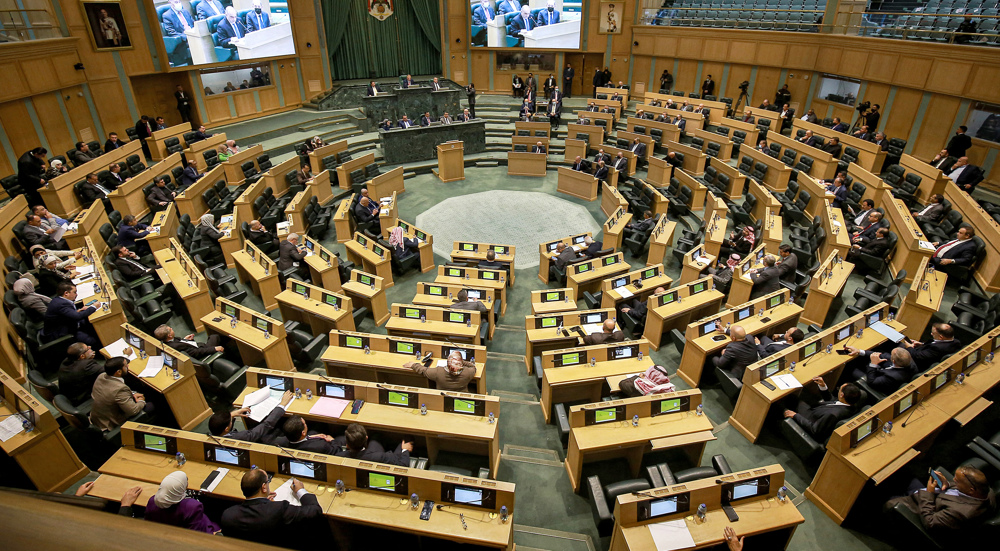
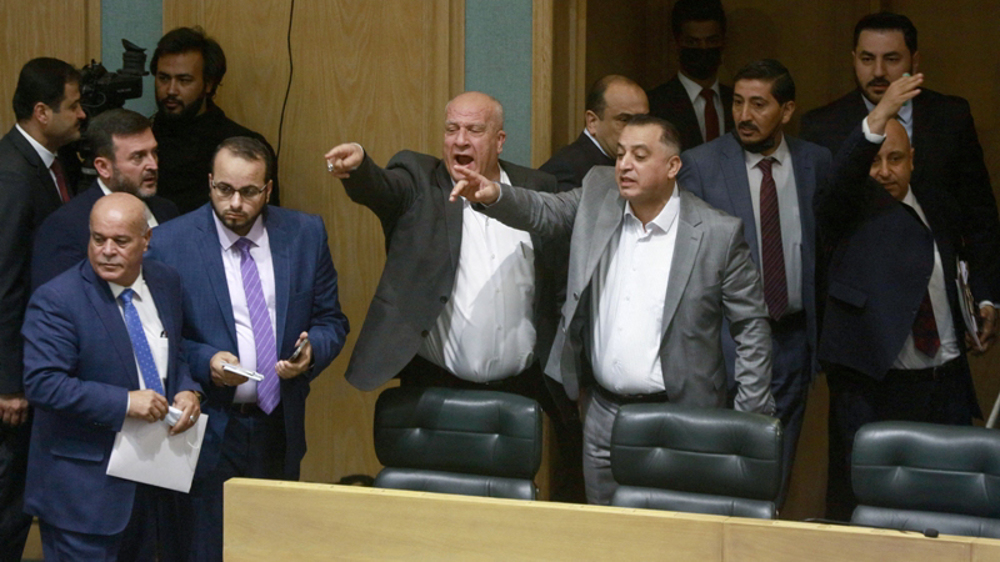
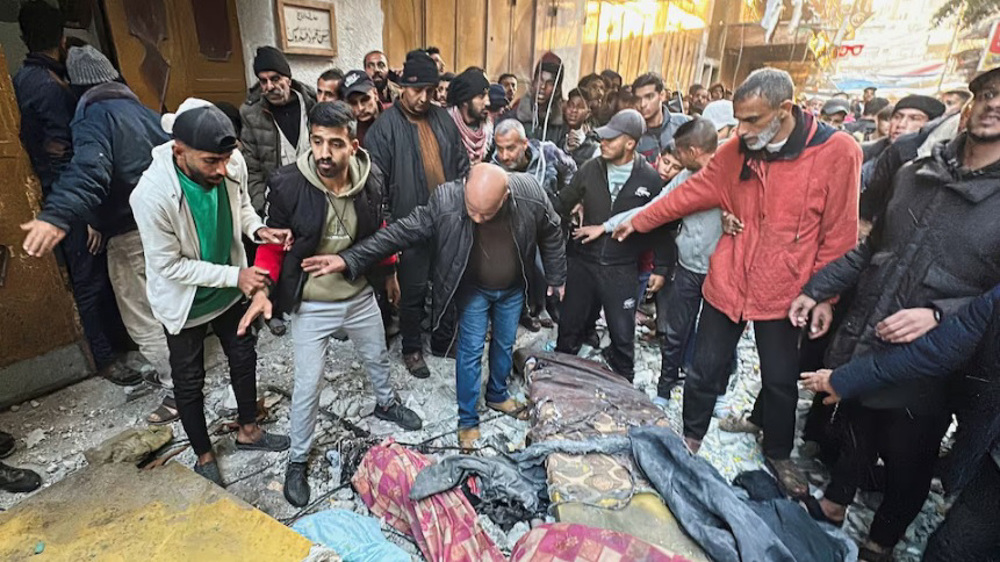
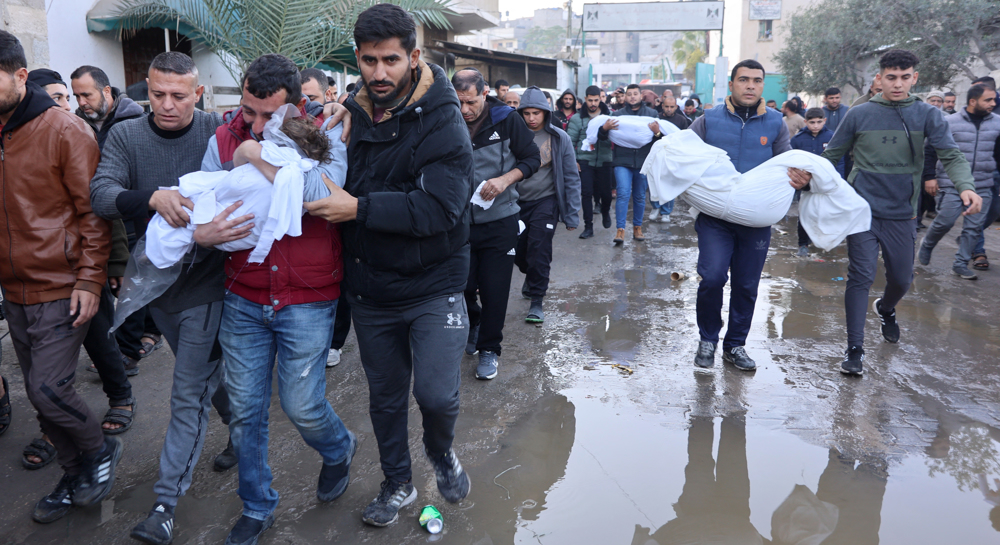




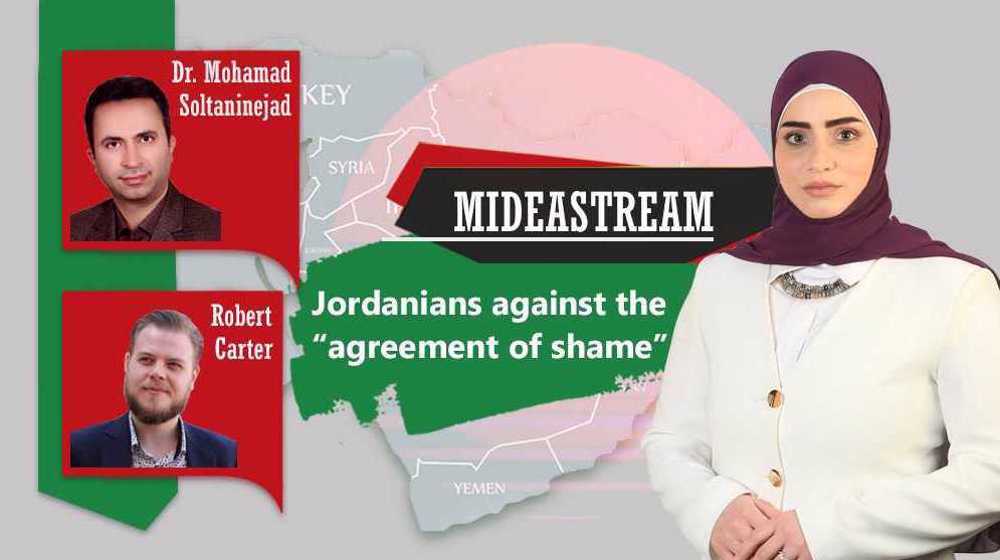
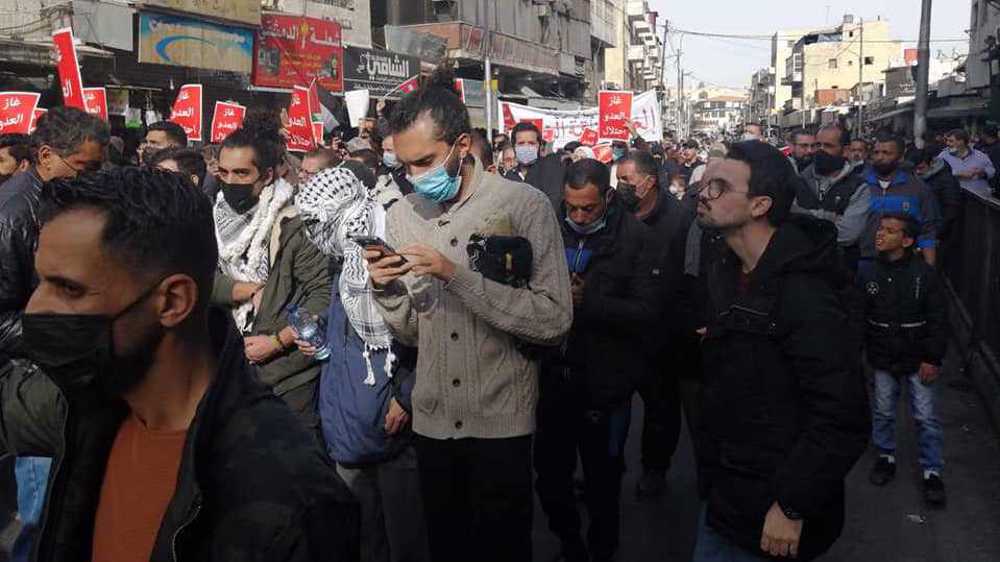
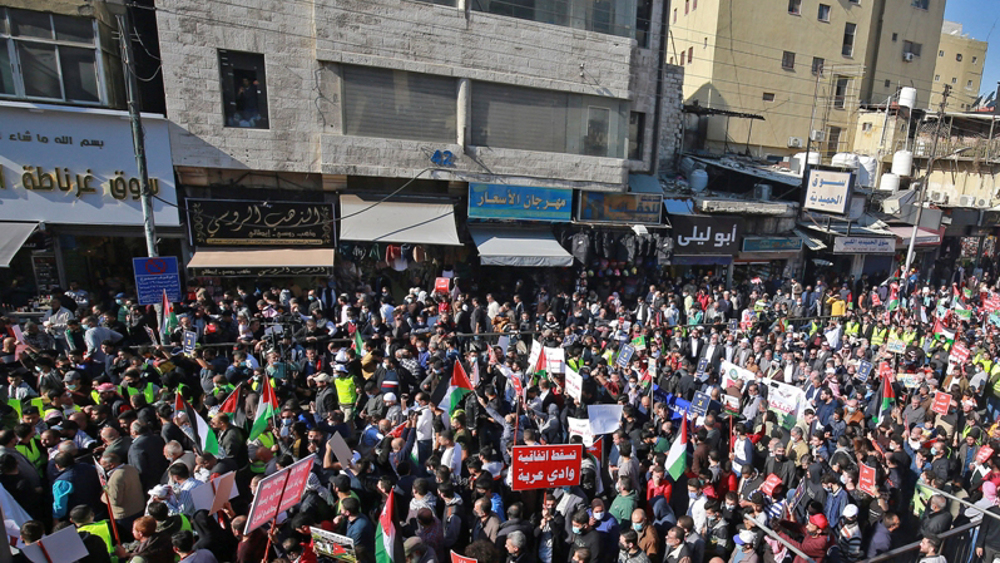

 This makes it easy to access the Press TV website
This makes it easy to access the Press TV website